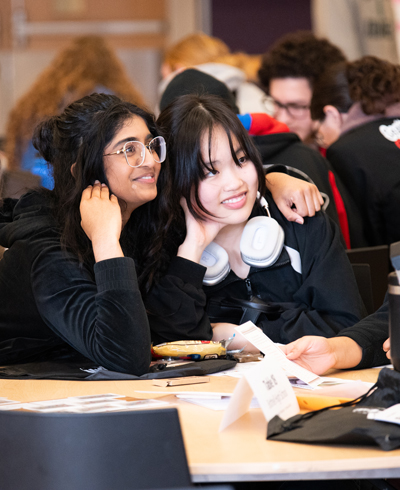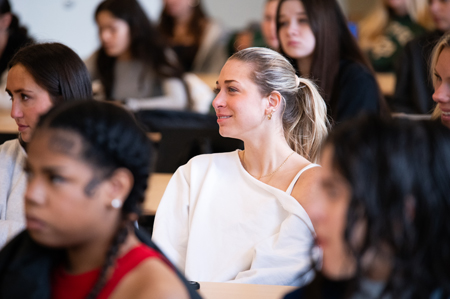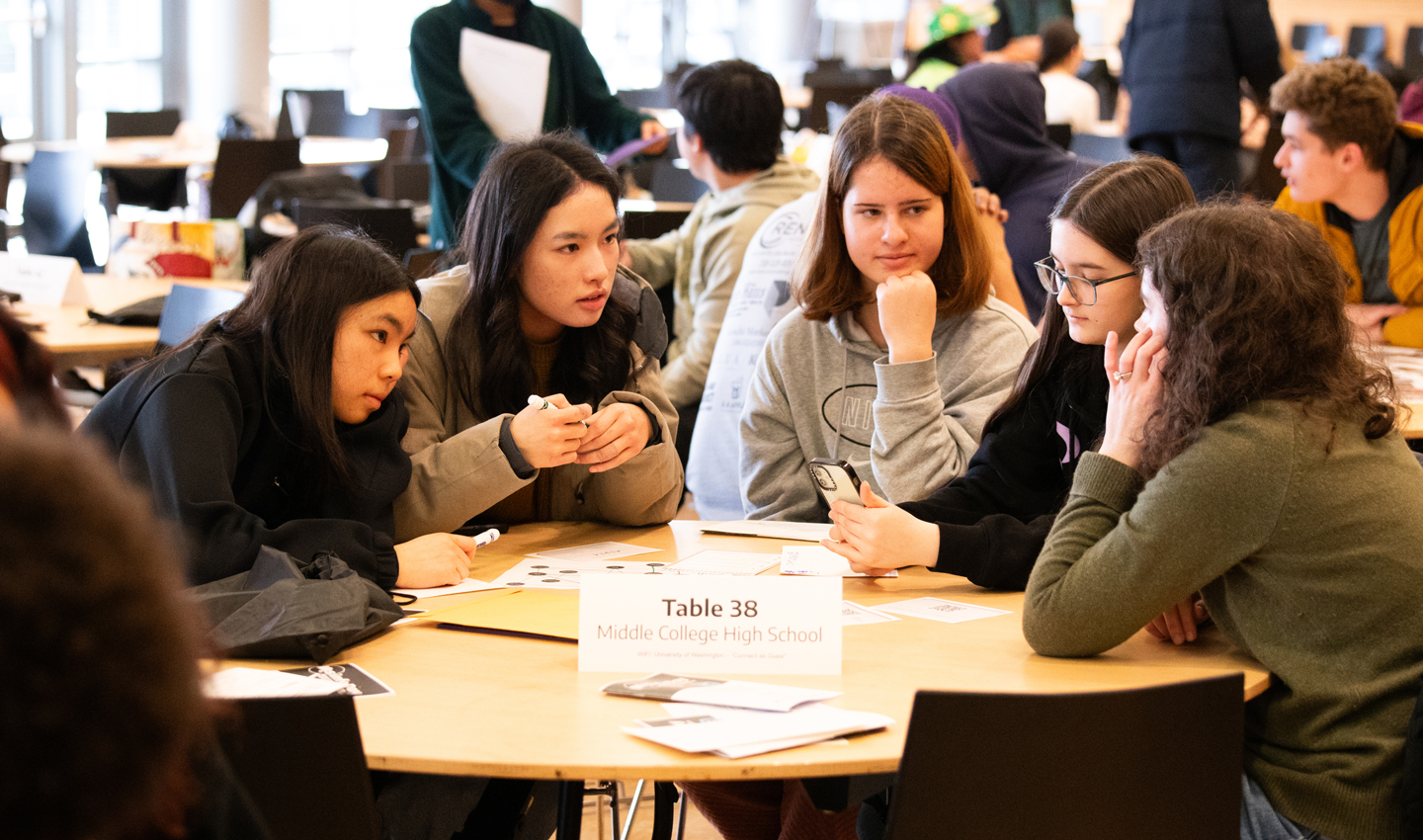More than 500 Washington high school students, teachers and librarians gathered at the University of Washington in Seattle on March 17 for MisinfoDay 2025, an annual event featuring educational workshops, gaming activities and other programming aimed to help participants navigate complex information environments and make informed decisions about what they see online.
MisinfoDay is co-organized through a statewide partnership between the UW Center for an Informed Public and Washington State University’s Edward R. Murrow College of Communication.
The first MisinfoDay was organized by the UW Information School in 2019 and in the years since has reached thousands of students across Washington, led to the creation of intergenerational learning opportunities in communities like Port Townsend and Sedro-Woolley and inspired similar media literacy educational events in other states, including California and Iowa.
 “It was wonderful to see students so engaged with this year’s MisinfoDay program and activities,” said Liz Crouse, the CIP’s MisinfoDay program manager who organized the first MisinfoDay at UW Seattle as part of an iSchool Master of Library and Information Science Capstone project. “It’s been great to see this program grow over the years and reach so many students and educators across Washington and beyond.”
“It was wonderful to see students so engaged with this year’s MisinfoDay program and activities,” said Liz Crouse, the CIP’s MisinfoDay program manager who organized the first MisinfoDay at UW Seattle as part of an iSchool Master of Library and Information Science Capstone project. “It’s been great to see this program grow over the years and reach so many students and educators across Washington and beyond.”
This year’s MisinfoDay featured six workshop sessions, including an examination of data visualizations with KUOW Public Radio creative manager Teo Popescu; a discussion with Rosemary Smith, producer of Trust Me, an award winning documentary about media literacy; and “What’s Your Frame: How We Make Sense of Online Rumors,” a session presented by CIP co-founder Kate Starbird.
There were also a handful of informational learning stations, including a misinformation-themed Jeopardy!-like game and skills-focused stations designed to help students spot “deepfake” images and improve their fact-checking skills. The learning stations were staffed by volunteers from the iSchool, CIP and the MisinfoDay Youth Advisory Board, a group of 13 students representing 9 Washington high schools who helped organizers test and provide feedback on programming for this year’s event.
A centerpiece of MisinfoDay has been the Euphorigen Investigation, a misinformation-themed “escape room” style game that immerses players in a world of manipulated media, social media bots and deepfakes with the aim of educating participants about misinformation tactics and their psychological effects. The Euphorigen Investigation is one of many educational Loki’s Loop games developed in recent years by CIP researchers in collaboration with colleagues at the Information School and Seattle-based Puzzle Break.
MisinfoDay at UW Seattle had additional gaming options beyond the escape room game. UW librarians, CIP fellows and scholars offered a choice of games that explore whether truth is black and white and how to beat the algorithm.
 CIP Community Fellow Shawn Lee, a teacher at Ballard High School in Seattle, said that his students found this year’s MisinfoDay program exciting, energizing and empowering. “MisinfoDay is an event I look forward to every year,” said Lee, who brought his students to MisinfoDay at UW Seattle in 2019 and in subsequent years.
CIP Community Fellow Shawn Lee, a teacher at Ballard High School in Seattle, said that his students found this year’s MisinfoDay program exciting, energizing and empowering. “MisinfoDay is an event I look forward to every year,” said Lee, who brought his students to MisinfoDay at UW Seattle in 2019 and in subsequent years.
Taking lessons from MisinfoDay at UW, Lee previously prototyped an intergenerational learning event at Ballard High School where students teach the adults in their lives, including their parents and grandparents, the digital literacy skills they’re learning in the classroom. Lee and colleagues at Ballard are planning a similar event for early June.
“We are living through an information revolution, but we are not educating our students on all the effects it is having on our mental health, our institutions and our society,” Lee said, noting how the lessons of MisinfoDay are valuable tools to help address these informational challenges.
In a MisinfoDay 2025 keynote address, CIP co-founder Jevin West, a UW iSchool professor who co-developed the popular Calling Bullshit data reasoning course at UW Seattle with UW Department of Biology professor Carl Bergstrom, told the assembled students, teachers and librarians that it’s “really easy to create BS online but it’s hard to clean up.”
West, who serves as the iSchool’s associate dean for research, continued: “There’s no way to solve misinformation, but we try different things to address it. It’s always going to be around and that’s why we’re here today.”
This article is excerpted from the original posted by the Center for an Informed Public. Read more on the CIP's website.
